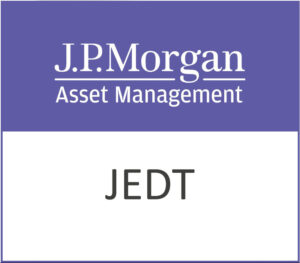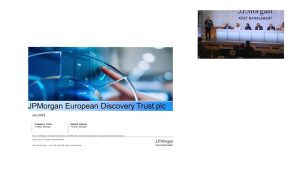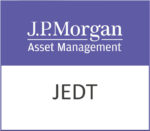JPMorgan European Discovery Trust plc (LON:JEDT) aims to provide capital growth from a diversified portfolio of smaller European companies (excluding the United Kingdom). As the emphasis is on capital growth rather than income, shareholders should expect the dividend to vary from year to year. The investment trust JEDT has the ability to use borrowing to gear the portfolio within the range of 20% net cash to 20% geared, in normal market conditions.
Useful Documents
Portfolio Managers
JPMorgan European Discovery Trust plc considers financially material Environmental, Social and Governance (ESG) factors in investment analysis and investment decisions, with the goal of enhancing long-term, risk-adjusted financial returns.
Important Announcement
With effect from 15 June 2021, and update of the ticker on 17 June 2021, the name and ticker of the Company have changed to JPMorgan European Discovery Trust plc (JEDT from JESC). These changes better reflect the Company’s investment strategy and its portfolio. Some of the Company’s portfolio companies have market capitalisations of up to EUR8bn; as such the Board believes that the Company’s name did not accurately describe the portfolio holdings or the investment opportunities available to the Investment Managers. All other Company details remain the same, including the Company’s ISIN, SEDOL and LEI.




